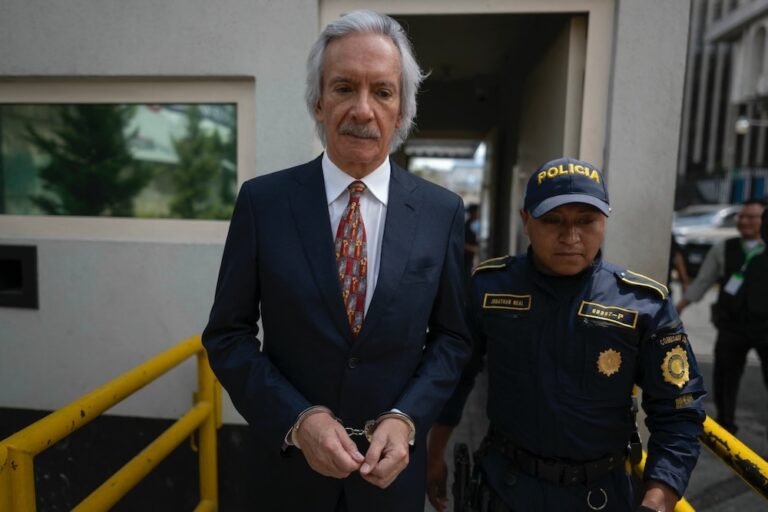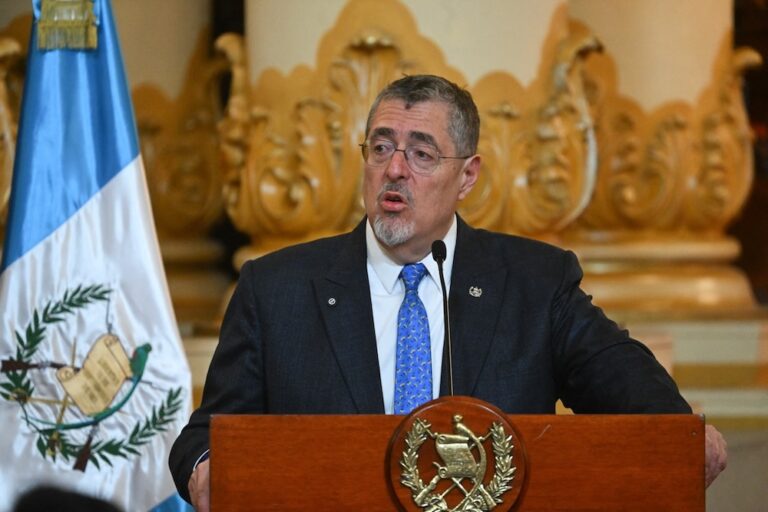(AMARC/IFEX) – On 4 August 2002, community media worker Carlos Andrade was verbally assaulted by the legal advisor to the Superintendency of Telecommunications (Superintendencia de Telecomunicaciones, SIT), Juan Alfredo Barrios. Andrade had gone to the SIT offices to obtain information regarding the latest tendering of radio frequencies. Andrade identified himself as a member of the […]
(AMARC/IFEX) – On 4 August 2002, community media worker Carlos Andrade was verbally assaulted by the legal advisor to the Superintendency of Telecommunications (Superintendencia de Telecomunicaciones, SIT), Juan Alfredo Barrios.
Andrade had gone to the SIT offices to obtain information regarding the latest tendering of radio frequencies. Andrade identified himself as a member of the Guatemalan Community Communications Council (Consejo Guatemalteco de Comunicacion Comunitaria, CGCC) and the Guatemalan community radio stations. He was told that the information was not available yet.
When Andrade requested a copy of the tender announcement, Barrios yelled at him, stating that he could not just give “anyone” a copy. Andrade asked Barrios if it was necessary for him to yell, to which Barrios answered, “yes, because that is the way I am, and if you don’t like it, too bad.”
This verbal assault against Andrade by a SIT staff member exemplifies the discriminatory attitude that government employees often show toward the media. AMARC and the CGCC believe that he was discriminated against because he is a representative for community radio stations. Moreover, Andrade was denied his right to access public information.
On 27 August, SIT granted 13 radio frequencies despite protests by the CGCC. None of the frequencies were granted to community radio stations. The frequencies were granted even though the Organisation of American States (OAS) special rapporteur on freedom of expression recommended the suspension of the tenders. Furthermore, in peace agreements signed by both the government and former guerrillas, the government promised to eliminate any standards that prevented community radio stations from gaining access to radio frequencies.
Recommended Action
Send appeals to authorities:
– calling on them to take the necessary steps to ensure that community radio stations are able to operate legally
– noting that, at present, community radio stations are not specifically mentioned in the laws governing telecommunications, and therefore are forced to operate “illegally”
Appeals To
José Orellana
Superintendent of Telecommunications
Tel: + 502 366 5880
Fax: +502 366 5890
E-mail: jorellana@sit.gob.gto
Please copy appeals to ACCG, e-mail: accg@intelnet.net.gt, and the source if possible.


